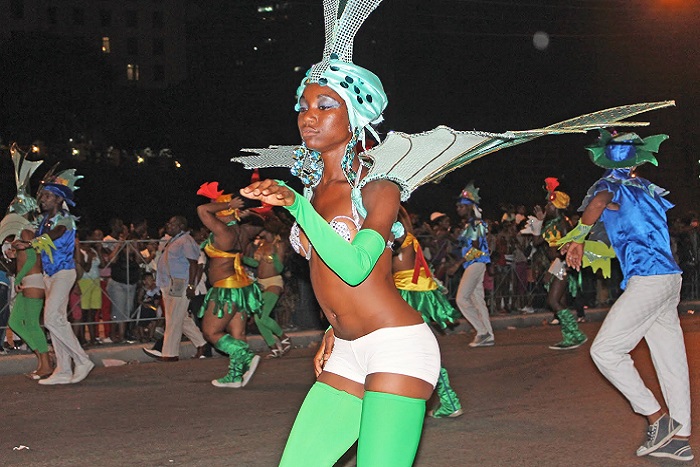For seven days in August, Habaneros find an excuse to forget about the rigors of daily life and spend the humid nights partying, getting drunk, and dancing as the city marked its traditional Carnaval.
Cavalcades of rival comparsas or choreographed dance troupes, invaded Havana’s seaside promenade, Malecon, and danced to the rowdy tunes of conga, rumba, reggaeton and salsa bands as packs of borrachos and borrachas line the Malecon to ogle at scantily-clad dancers shaking their God-given goods to the delight of the onlookers.
Cavalcades of rival comparsas or choreographed dance troupes, invaded Havana’s seaside promenade, Malecon, and danced to the rowdy tunes of conga, rumba, reggaeton and salsa bands as packs of borrachos and borrachas line the Malecon to ogle at scantily-clad dancers shaking their God-given goods to the delight of the onlookers.
The history of the Carnaval goes way back to Spanish colonial times when the Spanish slave masters allowed their African slaves a few days once a year to celebrate the songs and dances they have brought from their African homeland.

The tradition has lived on despite the current economic difficulties proving once and for all that Cubans, borrowing from the old Beastie Boys anthem, will fight for their right to party. Many of these comparsas were organized decades or even centuries before with the younger generation eventually taking over from their old ancestors. As seen in the photos, the comparsas are still largely made up of dancers with Afro-Cuban roots.
Fidel Castro, in one of his dubious moments, initially tried to forbid the holding of the Carnaval, believing that it was anathema to his concept of the New Man. He eventually gave up trying to control it because he realized that the tradition is as natural to Cubans as eating and drinking. I honestly believe that the only reason that would make Cubans rebel against the system is if partying, drinking and merrymaking were to be outlawed by the Socialist government. Cuba temporarily stopped holding the Carnaval when the Maximum Leader fell ill, but, thankfully, the merrymaking has been restored back to its former glory.
Besides, letting off steam once in a while redounds to greater benefits for the regime, which makes Havana’s night life and party scene, in general, so ironic! For a tightly controlled society, Havana’s nightlife is very colorful and riotous. Cubans may be materially poor, but they will never be accused of lacking in spirit and animo. The Cuban people are so uninhibited and spontaneous that you wouldn’t think you are in tightly controlled society, except for the tell-tale signs of centralized government control such as the ubiquitous SEPSA operatives at every corner, and the CCTV cameras placed at every intersection.
For seven straight nights, Cubans were able to temporarily forget about revolutionary slogans and thought about nothing but pure, unadulterated fun and merrymaking.